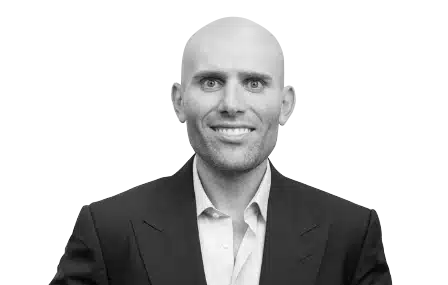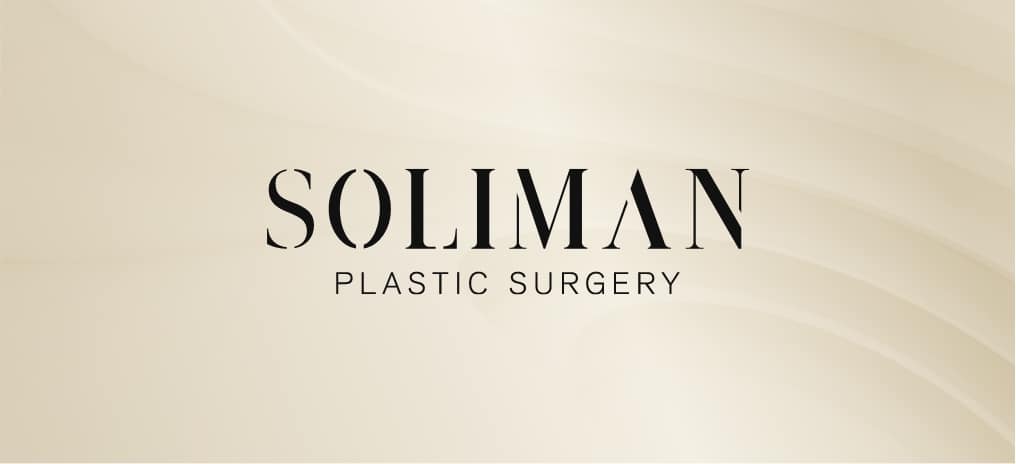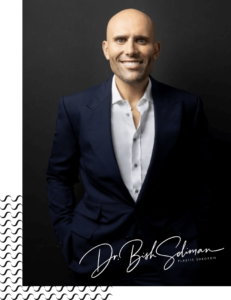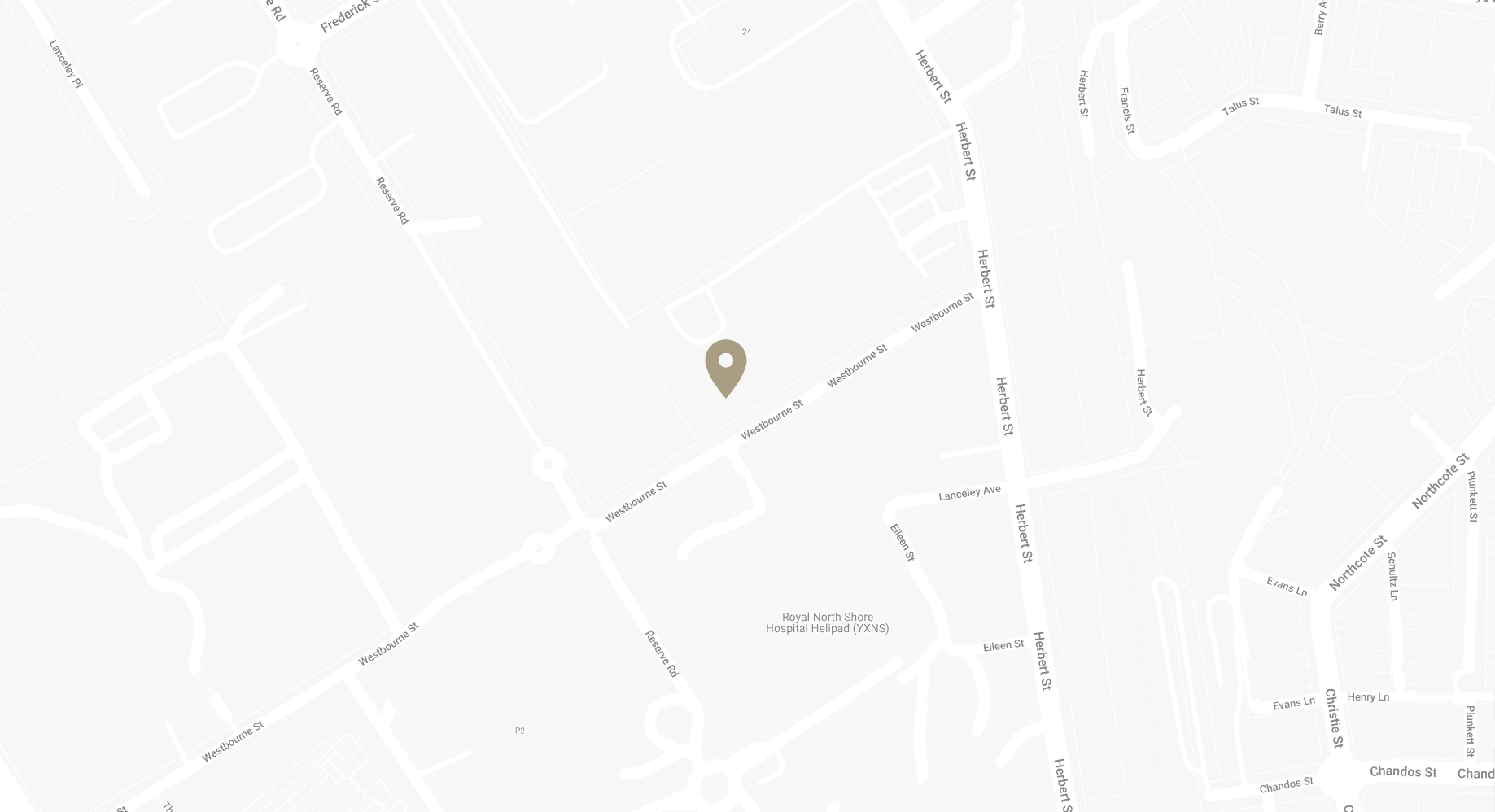Your Top Abdominoplasty Questions Answered
Abdominoplasty is a complex plastic surgery procedure that entails removing excess skin and fat from the abdominal wall and strengthening weak abdominal muscles. Before scheduling your procedure, you should know how to prepare and what to expect during and after the intervention.
Sydney Specialist Plastic Surgeon Dr Bish Soliman aims to shed light on all the details associated with getting a tummy tuck – abdominoplasty, from getting ready for the surgery to expectations and durability of the results in this blog.
Download Dr Bish Soliman Abdominoplasty Guide
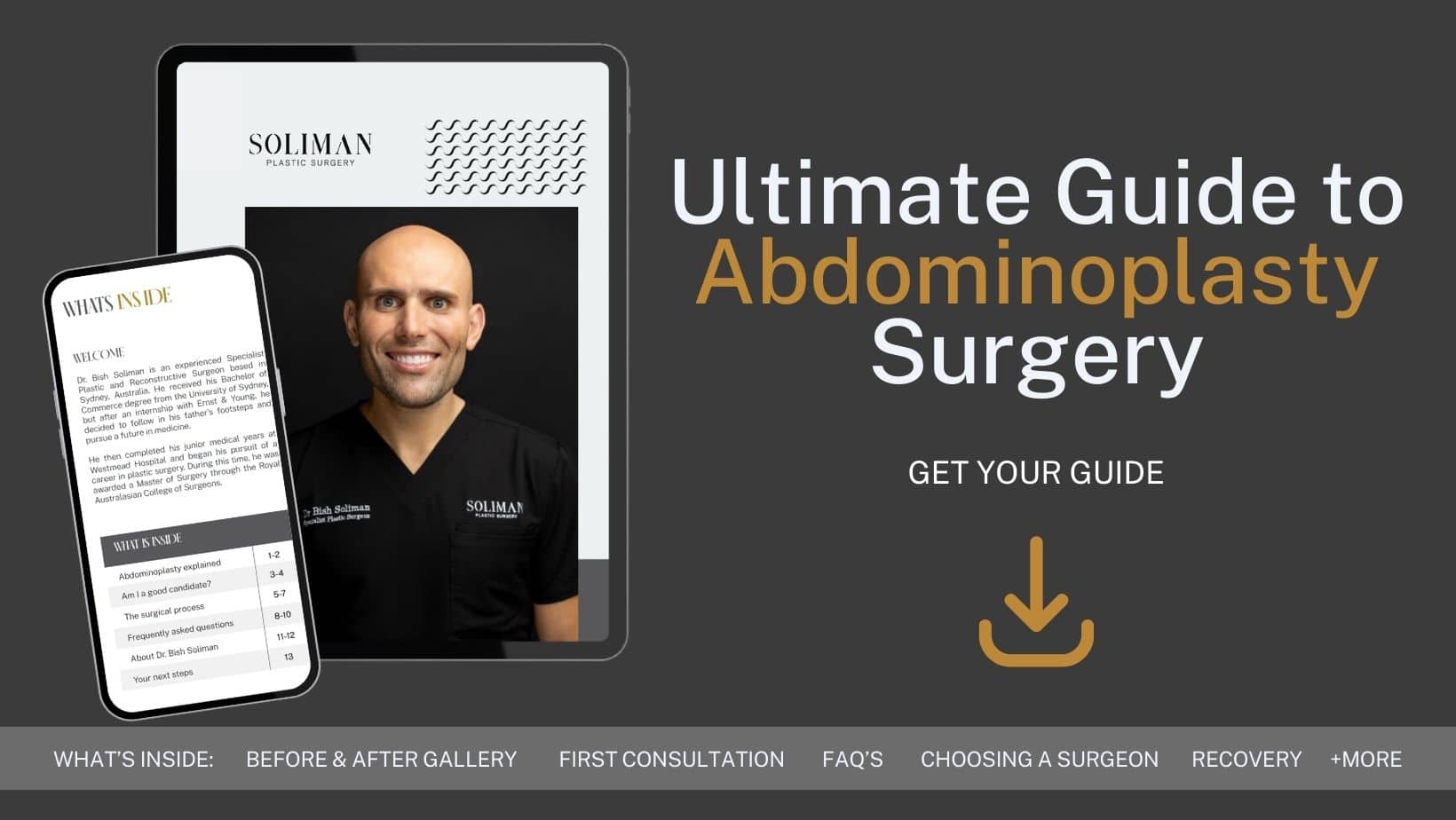
FAQs about Tummy Tuck – Abdominoplasty Procedure Details
What exactly is abdominoplasty?
- Abdominoplasty, commonly referred to as a tummy tuck, is a surgical procedure aimed at removing excess skin and fat from the abdominal area. It often involves tightening the muscles in the abdominal wall. This procedure is particularly popular among those who have experienced significant weight loss or women post-pregnancy.
Are there different types of abdominoplasty?
- Yes, there are several types of abdominoplasty, each tailored to address specific needs. The most common types include the full abdominoplasty, which targets the entire abdominal area, and the mini-abdominoplasty, which focuses on the area below the belly button. Additionally, there’s an extended abdominoplasty that extends the incision to improve the flank and side areas, and a circumferential abdominoplasty, which involves removing excess skin and fat from the entire circumference of the waistline.
Who is a good candidate for abdominoplasty?
- A good candidate for abdominoplasty is someone in good general health, at a stable weight, and with realistic expectations about the outcome. It’s best suited for individuals who have excess skin or weakened abdominal muscles that cannot be corrected through diet and exercise alone. It’s important for patients to disclose their full medical history to assess suitability for this surgery.
What does the abdominoplasty procedure entail?
- Abdominoplasty involves an incision along the lower abdomen, just above the pubic area. Dr Soliman then removes excess skin and fat and tightens the abdominal muscles if necessary. The remaining skin is then pulled down and sutured into place. The procedure can take anywhere from 2 to 5 hours, depending on the complexity and type of tummy tuck – abdominoplasty being performed.
Is the abdominoplasty procedure painful?
- As abdominoplasty is performed under anaesthesia, you won’t feel pain during the surgery. Post-operative pain is typically managed with prescribed pain medications. Most patients report discomfort rather than severe pain, which usually subsides within a few days to a week after the surgery.
How long does it take to recover from an abdominoplasty?
- Recovery time can vary, but most patients can return to normal activities within 2 to 4 weeks. Complete recovery and the final results may take several months to become fully apparent. It’s crucial to follow post-operative instructions closely to ensure a smooth recovery process.
What are the potential risks of abdominoplasty?
- As with any surgical procedure, abdominoplasty carries risks such as infection, bleeding, and scarring. Specific risks associated with abdominoplasty include seroma (fluid accumulation), numbness, and changes in skin sensation. It’s important to discuss all potential risks with Dr Soliman before the procedure.
Can abdominoplasty help with weight loss?
- Abdominoplasty is not a weight loss procedure. It’s designed to remove excess skin and fat and tighten muscles. While some weight may be lost due to the removal of skin and fat, abdominoplasty should not be considered a substitute for weight loss or a healthy lifestyle.
FAQs about Preparation for Tummy Tuck – Abdominoplasty Surgery
How should I prepare for an abdominoplasty consultation?
- Prior to your consultation, it’s beneficial to have a clear understanding of your goals and any concerns you may have. Gather a list of questions for Dr Soliman, and be prepared to discuss your medical history, including any previous surgeries, current medications, and overall health status.
Are there any pre-operative tests required?
- Yes, pre-operative tests are typically required to ensure your fitness for surgery. These may include blood tests, a complete physical examination, and sometimes an ECG or other specialised tests, depending on your medical history.
Should I make any lifestyle changes before the surgery?
- It’s advisable to adopt a healthy lifestyle before undergoing abdominoplasty. This includes maintaining a stable weight, eating a balanced diet, and quitting smoking, as smoking can hinder the healing process. Avoiding excessive alcohol consumption is also recommended.
Can I continue my medications before the surgery?
- You should discuss your current medications with Dr Soliman, as some may need to be temporarily stopped or adjusted. This is particularly important for medications that can affect blood clotting, such as aspirin or certain anti-inflammatory drugs.
Do I need to arrange for assistance during my recovery?
- Yes, it’s crucial to arrange for someone to drive you home after the surgery and stay with you for at least the first night. You may also need help with daily activities for the first few days post-surgery.
What should I wear on the day of the surgery?
- Wear loose, comfortable clothing on the day of your surgery. Choose a top that zips or buttons up the front to avoid having to pull clothing over your head after the procedure.
How should I manage my diet before the surgery?
- Maintain a well-balanced diet leading up to the surgery. You will likely be instructed to fast (not eat or drink) for a specific period before your surgery time, usually starting from midnight the night before.
What arrangements should I make for the recovery period?
- Prepare your recovery area at home with essentials within easy reach. This includes medications, water, snacks, books, a remote control, and pillows to keep yourself elevated. It’s also wise to prepare or arrange for easy-to-make meals.
Is there anything I should avoid before the surgery?
- Avoid taking any blood-thinning supplements or medications (unless prescribed) and certain herbal supplements. Also, abstain from alcohol and recreational drugs in the weeks leading up to the surgery.
Should I do anything special the night before or the morning of the surgery?
- The night before your surgery, you should follow any specific instructions given by Dr Soliman regarding fasting or medication. On the morning of your surgery, take a shower using antibacterial soap if advised, and avoid applying any lotions, perfumes, or deodorants.
FAQs about Recovery and Aftercare
What can I expect immediately after the surgery?
- Post-surgery, you’ll likely experience soreness, swelling, and bruising in the abdominal area. You’ll be dressed in a compression garment to reduce swelling and support the healing tissues. It’s normal to feel tired and you should plan to rest as much as possible in the first few days.
How long will I need to wear the compression garment?
- The compression garment is typically worn for six weeks after the surgery. Dr Soliman will provide specific instructions based on your individual recovery.
When can I resume normal activities and exercise?
- Most patients can return to light activities within 2-4 weeks. Keep in mind that heavy lifting and strenuous exercise should be avoided for at least 6 weeks. Always follow Dr Soliman’s advice regarding activity levels during recovery.
What is the best sleeping position post-surgery?
- It’s recommended to sleep on your back with your upper body slightly elevated (using pillows) for the first few weeks. This position reduces strain on the surgical area and helps with swelling.
How do I manage post-operative pain?
- Pain and discomfort are manageable with prescribed pain medications. It’s important to take them as directed and communicate with Dr Soliman if pain becomes unmanageable.
How can I ensure optimal healing of the incision?
- Keep the incision clean and dry. Follow your surgeon’s instructions on how to care for the wound and when you can start showering. Avoid applying any creams or lotions to the incision site unless recommended by Dr Bish Soliman.
When can I return to work after abdominoplasty?
- The time off work depends on the nature of your job. If your job is sedentary, you might return within 2-3 weeks. However, if your job involves physical labour, you may need to take more time off.
What are the signs of complications I should watch for?
- Be vigilant for signs of infection such as increased redness, swelling, warmth at the incision site, fever, or unusual discharge. Also, watch for severe pain, chest pain, shortness of breath, or leg pain, which could indicate a blood clot.
Can I drive after abdominoplasty?
- Driving should be avoided until you can perform emergency stops without discomfort and are no longer taking pain medication, usually around 2 weeks post-surgery.
Are there any dietary recommendations for a smoother recovery?
- Eating a balanced diet rich in proteins, vitamins, and minerals can aid in the healing process. Stay hydrated and consider incorporating foods that can help reduce inflammation, such as leafy greens, berries, and nuts. Avoiding excessive salt can also help minimise swelling.
FAQs about Risks and Complications of Tummy Tuck – Abdominoplasty
What are the common risks associated with abdominoplasty?
- Like any surgical procedure, abdominoplasty carries risks such as infection, bleeding, and an adverse reaction to anaesthesia. Swelling, bruising, and discomfort are also common post-operative experiences.
Can there be complications with wound healing?
- Yes, wound healing complications can occur, particularly in patients who smoke or have certain medical conditions. These complications can include delayed healing, wound separation, or more pronounced scarring.
Is there a risk of scarring after abdominoplasty?
- Scarring is an inevitable part of the healing process after abdominoplasty. The extent and appearance of scarring vary between individuals. Dr Soliman will aim to minimise and strategically place incisions to reduce visible scarring.
What is seroma and how is it treated?
- Seroma is the accumulation of fluid under the skin. It’s one of the most common complications following abdominoplasty. Small seromas often resolve on their own, while larger ones may require drainage by Dr Soliman.
Can I experience changes in sensation?
- It’s common to experience temporary numbness or changes in skin sensation around the surgical site. This usually improves over time, but in rare cases, it can be more long-lasting.
Are there risks associated with the tightening of abdominal muscles?
- Tightening of the abdominal muscles may cause discomfort and restrict certain movements initially. There’s also a small risk of muscle repair breakdown, especially if post-operative instructions are not followed.
What should I know about the risk of blood clots?
- Blood clots, though rare, are a serious complication that can occur after abdominoplasty. To minimise this risk, patients are encouraged to move around as soon as it is safe after surgery and follow their surgeon’s recommendations for post-operative activity.
FAQs about Cost of Abdominoplasty and Insurance in Australia
How much does abdominoplasty typically cost in Australia?
- The cost of abdominoplasty in Australia varies widely depending on the surgeon’s experience, the complexity of the procedure, and the specific type of abdominoplasty performed.
Is abdominoplasty covered by Medicare or private health insurance in Australia?
- Medicare and private health insurance in Australia may cover a portion of the costs of abdominoplasty if it’s deemed medically necessary – for example, after significant weight loss or post-pregnancy complications. But if the procedure is purely for cosmetic reasons, it is unlikely to be covered. It’s important to check with both Medicare and your private health insurer for specific coverage details.
Are there any additional costs I should be aware of?
- Beyond the basic surgical costs, you should also consider expenses for pre-operative tests, post-operative garments, any necessary medications, and potential costs for aftercare or follow-up visits. Ask Dr Soliman’s team for a comprehensive quote to understand the full financial commitment.
FAQs about Abdominoplasty Results and Expectations
What kind of results can I expect from abdominoplasty?
- Abdominoplasty is designed to remove excess skin and fat and tighten abdominal muscles. The final result is a more toned abdomen. However, it’s important to maintain realistic expectations and understand that results vary from person to person.
How long will it take to see the final results of my abdominoplasty?
- While you will notice a change in your abdomen immediately after surgery, the final results may take several months to become fully apparent. Swelling and bruising need time to subside, and it takes a while for the skin to fully adjust to the new contours.
Will the results of my abdominoplasty be permanent?
- The results of an abdominoplasty can be long-lasting, especially if you maintain a stable weight and follow a healthy lifestyle. Keep in mind that factors like significant weight fluctuation, ageing, and pregnancy can affect the durability of the results.
How can I maintain the results of my abdominoplasty?
- Maintaining a stable weight through a balanced diet and regular exercise is crucial for preserving the results. Significant weight gain or loss after surgery can compromise the aesthetic outcome.
What will the scars from abdominoplasty look like?
- Abdominoplasty incisions result in a horizontal scar along the lower abdomen, which can be concealed under most clothing and swimwear. The appearance of the scar varies and generally fades over time but will not disappear completely.
Can I have abdominoplasty if I plan to have children in the future?
- While it’s technically possible to have children after an abdominoplasty, pregnancy can significantly alter the results of the surgery. It’s generally recommended to wait until you are done having children before undergoing an abdominoplasty for more lasting results.
Further Reading about Tuck Surgery (Abdominoplasty) with Dr Bish Soliman
- Read Dr Bish Soliman’s Blog about Medicare for Abdominoplasty
- Read Dr Bish Soliman’s Blog about Pregnancy after Abdominoplasty Surgery
- Read Dr Bish Soliman’s Blog about Abdominoplasty vs. Liposuction or Combined Procedures
- Read Dr Bish Soliman’s Blog about How to Reduce and Improve Your Tummy Tuck Scar (Abdominoplasty Scar)
- Read Dr Bish Soliman’s Blog about Recovery after Abdominoplasty
- Read Dr Bish Soliman’s Blog about Lipoabdominoplasty for a Contoured Stomach
- Read Dr Bish Soliman’s Blog about Getting Back to Exercise After Tummy Tuck (Abdominoplasty)
